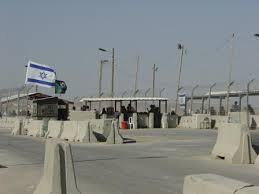By Paul Nicholson
February 18 – The tensions and distrust between the Israelis and the Palestinians regarding the negotiation of freedom of movement for Palestinian footballers, have been sharpened with the news that the two young Palestinian footballers shot by Israeli security forces in the West Bank are unlikely to play again.
Jawhar Nasser Jawhar, 19, and Adam Abd al-Raouf Halabiya, 17, were shot by Israeli soldiers as they were walking home from a training session in the Faisal al-Husseini Stadium in al-Ram in the central West Bank on January 31.
Three days later FIFA president Sepp Blatter chaired a mediation Task Force set up last year to seek a solution to the travel restrictions placed on Palestinian footballers and officials in the West Bank by Israeli security forces. The meeting was attended by both the head of the Israeli FA, Avi Luzon, and his Palestinian counterpart, Jibril al-Rajoub as well as representatives from the Asian Football Confederation and UEFA.
While the shootings would have had no immediate influence on the negotiations, they serve as an immediate and graphic reminder of the situation for Palestinian sports people in the region.
Reports of the incident were that Israeli forces opened fire without warning as the boys were walking near a checkpoint. Police dogs were subsequently unleashed on them before Israeli soldiers dragged them across the ground and beat them.
The pair were subsequently were taken to an Israeli hospital in Jerusalem, where they underwent a number of operations to remove the bullets.
Medical reports said that Jawhar was shot with 11 bullets, seven in his left foot, three in his right, and one in his left hand. Halabiya was shot once in each foot. The two were taken to Ramallah governmental hospital before being transferred to King Hussein Medical Center in Amman.
Rajoub condemned the shooting and said: “Israeli brutality against them (the boys) emphasizes the occupation’s insistence on destroying Palestinian sport.”
Last week Rajoub said the Palestinian FA will seek the expulsion of Israel from FIFA at the next FIFA Congress in June, and that he has the support of other Arab and North African nations.
It is an awkward situation for FIFA who are getting close to being caught in a wider political and security debate. FIFA recognises Palestine as a full member, as it does Israel. The Israeli security forces have accused the Palestinians of using football to hide the movement of terrorists and equipment within the region. The Palestinians have denied this and point to the inability to get footballers to training and matches which they say is a deliberate act of oppression.
Rajoub told Insideworldfootball earlkier this month that Luzon’s hands were tied by the Israeli government. “He said he wanted to help but that he couldn’t and that the issue had to be discussed with the relevant Israeli authorities. In a way I can sympathise with this position but it was a clear message.
“I welcome Mr Blatter’s initiative for ending the suffering of the Palestinian footballers and ending the restrictions imposed by the Israeli occupation. It’s not just players. You are talking about instructors, consultants, anyone who wants to come to Palestine. They have to wait for hours to get permits.”
But what started as a straightforward initiative to enable freer movement of players and officials has quickly escalated to the more entrenched political positions of the two sides.
Blatter had announced he was pleased with the progress that had been made in the last meeting in Zurich and that he will once again travel to the region in April in a bid to further improve relations between the two sides. Blatter ideally wants Israel and Palestine to sign a formal co-operation agreement at or around the FIFA Congress. But with developments on the ground in the region that is looking like an increasingly distant possibility.
Contact the writer of this story at moc.l1745291979labto1745291979ofdlr1745291979owedi1745291979sni@n1745291979osloh1745291979cin.l1745291979uap1745291979


